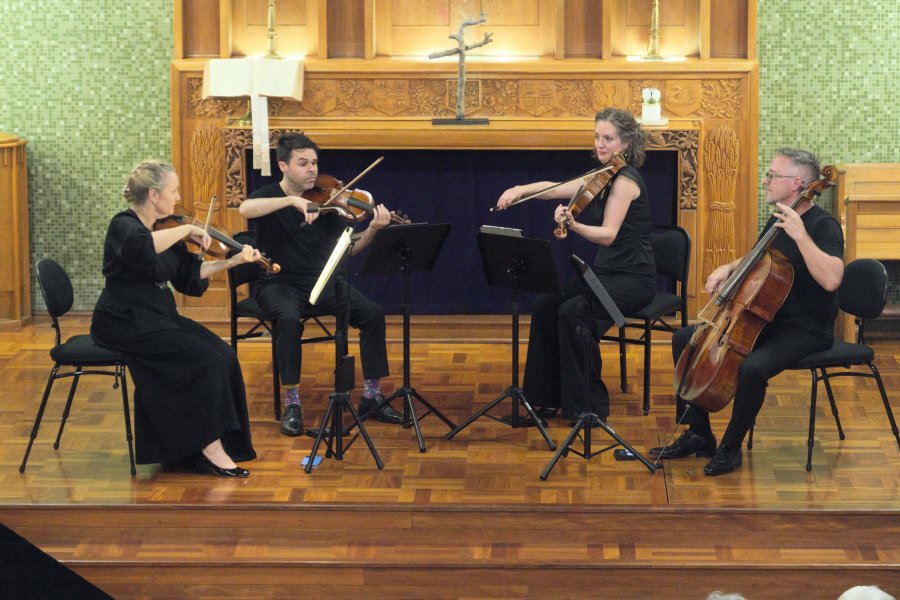
WHEN Nora Helmer exits the stage in Henrik Ibsen’s famous drama, “A Doll’s House”, the door slam is one of the loudest in history.
In 1879 when the play was first seen, it was unthinkable anywhere, not just in a strict Lutheran Norway, that a wife should walk out on her husband, even one as tedious as Torvald Helmer, and her actions resonated around the world, making Ibsen an international enfant terrible.
Now The Street Theatre is answering Canberra Rep, for which Aarne Neeme staged the original play early this year, with a production of US playwright Lucas Hnath’s play, “A Doll’s House, Part 2”.
Playgoers and readers have long been speculating on what happened to her after that door-slam and Hnath has come up with an answer. In his version, we are back at the Helmer house 15 years later, there’s a loud knock at the door and who should be there but Nora.
We won’t give out too many spoilers, but her traditionalist banker husband, here played by PJ Williams, is still scratching his head trying to work out what went wrong, while his children have been brought up by their nurse Anne-Marie (Camilla Blunden) and have a very different outlook on the world.
When we catch up with comedian Rachel Berger, who plays Nora, and Williams for coffee at The Street, they’re busy grappling with the big ideas proposed by both Ibsen and Hnath – “sweeping up the crumbs of Ibsen,” one New York writer said.
“It’s something like forum theatre, a kind of sporting match,” Williams suggests.
In the battle between selfishness and righteousness, the characters are partly metaphors, but for the actors, it’s Lucas Hnath’s language and the cadence of his writing which are exquisite.
Proof of the text’s quality is that there are only two stage directions. Mind you, Ibsen’s door slam stage direction is second in fame only to Shakespeare’s “exit, pursued by a bear”, so should not be dismissed.
“The basics are in the original play,” Berger says.
“But that was in 1879 and now its 1894. It’s a different era, Nora’s a very different person, times have changed.”
You can say that again. Director Caroline Stacey has been studying the history of Scandinavian divorce laws and this period of transition into a new era, which saw considerable ups and downs.
“There’s been a period reconsideration, there’s been a transition into no-fault divorce,” Berger says. “Think the 1960s, think Gloria Steinem.”
After a bit of arm-twisting, the actors are prepared to reveal that she’s come back to get Torvald to sign papers for a divorce, there are twists and turns, so The Street is promoting it as a kind of a thriller without a dead body – unless you consider the marriage, that is.
Theatregoers will recall Torvald’s putdowns of Nora as he calls her, “my little squirrel” and “my little songbird”.
“The diminutive is a way of belittling people,” Williams says.
On the other hand, Berger suggests: “People still call each other sweetheart and darling – I like ‘darling’.”
Berger presumes that when last seen, Nora was in her 20s and now she’s 40-ish. As for Torvald, last seen when he was getting a promotion at the bank, Williams guesses he’s heading for his 60s now. He’s had to “keep the world turning” while maintaining some sort of dignity as a deserted husband, but he hasn’t moved on, although, “he’s wondered very much in his head for 15 years… Nora appears out of nowhere, who can say how he feels?”
To Berger one significant point about Nora is that while she’s aged and has achieved a measure of success as a writer of proto-feminist novels, she’s still not able to articulate the sense of having been a doll living in a doll’s house.
“I don’t think she really knew what she did all those years ago,” Berger says.
“So this is the story of self-actualisation, it’s about choices and consequences.”
Those consequences are personified in the character of Nora’s daughter Emmy (Lily Constantine), who comes in late bringing a new current to the play. She’s one of the three children left behind with Torvald, now grown up and seemingly assured.
“Meeting her daughter after 15 years, Nora sees a lot of herself in her, but she doesn’t express her emotions the way you’d expect… but Emmy is a pain in the arse,” Berger says. “Gen Z.”
“A Doll’s House, Part 2”, The Street Theatre, June 14-23. Book at thestreet.org.au or 6247 1223.
Who can be trusted?
In a world of spin and confusion, there’s never been a more important time to support independent journalism in Canberra.
If you trust our work online and want to enforce the power of independent voices, I invite you to make a small contribution.
Every dollar of support is invested back into our journalism to help keep citynews.com.au strong and free.
Thank you,
Ian Meikle, editor








Leave a Reply